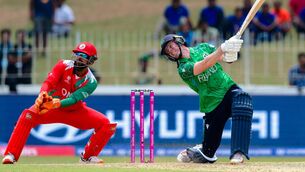Winter Olympics: Drugs shame ruins games finale
Hours after winning a gold medal in the 30-kilometre cross-country race, Larissa Lazutina of Russia was disqualified for failing a urine test.
Lazutina was stripped of her medal and disqualified after testing positive for the blood-boosting drug darbepoetin related to EPO but much stronger.














